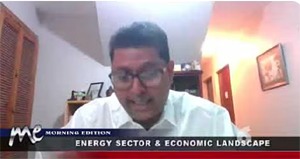U.S. Tightens Grip on Maduro with Dragon and Cocuina-Manakin Gas Licenses Revocation

EnergiesNet
PORT SPAIN
EnergiesNet.com 04 08 2025
The United States has revoked licenses previously granted to Trinidad and Tobago for the development of offshore natural gas fields shared with Venezuela, including the Dragon Gas Field and Manakin-Coquina Field. These licenses, issued by the Office of Foreign Assets Control (OFAC), allowed major energy companies like BP and Shell to advance projects critical to regional energy security. The decision, part of broader U.S. sanctions on Venezuela, halts efforts to process Venezuelan gas in Trinidad for LNG and petrochemicals, creating significant economic and diplomatic repercussions.
Prime Minister Stuart Young described the revocation as “disappointing but not unexpected.” During discussions with U.S. Secretary of State Marco Rubio, Young emphasized the strategic importance of these projects to Trinidad, CARICOM nations, and the regional energy supply. Rubio assured that U.S. foreign policy does not intend to harm Trinidad and Tobago, but Young has requested further dialogue to address the situation.
The decision impacts Trinidad’s energy security, as declining domestic gas reserves make access to Venezuelan gas vital for sustaining exports. Economic opportunities tied to these projects, including revenues from processing Venezuelan gas, have been disrupted, and Trinidad’s leadership in Caribbean energy diplomacy may face challenges. For investors like BP and Shell, uncertainty arises, halting planned development and exploration activities.
For Venezuela, the revocation blocks immediate prospects for monetizing its vast gas reserves, such as the Dragon Gas Field with its 4 trillion cubic feet of natural gas. Already under stringent U.S. sanctions, Venezuela loses another avenue to stabilize its economy and improve strained relations with the U.S. The cancellation highlights ongoing geopolitical tensions and complicates Venezuela’s global energy engagement.
This development reflects broader challenges in balancing economic priorities, regional energy security, and international sanctions.
Sources: OFAC, Reuters, Trinidad Express, Trinidad Guardian, TTLive
Written by Elio Ohep in Bogota, EnergiesNet – PetroleumWorld
EnergiesNet.com 04 08 2025













